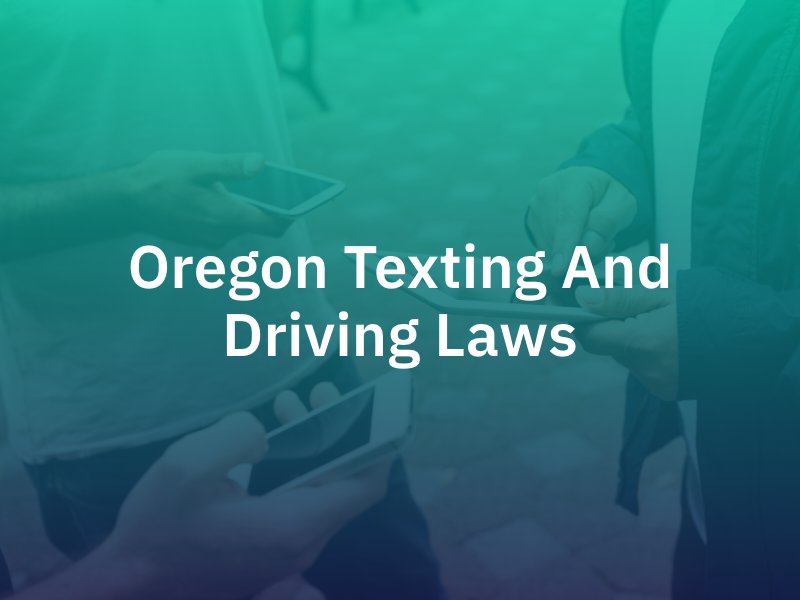Oregon Texting And Driving Laws
Posted on January 11, 2021 in Car Accident
All too often, we hear about car accidents caused by texting and driving. Nearly everybody has a cell phone or another type of device that can cause distractions behind the wheel of a vehicle. With all of us having mini-computers in our pockets, it can be very tempting to check text messages, glance at the latest news, or check out the latest memes. However, this type of behavior behind the wheel can lead to devastating accidents. Here, we want to discuss what Oregon law says about texting and driving.

Texting and driving can lead to devastating accidents
When we turn to information available from the Centers for Disease Control and Prevention (CDC), we can see that the agency defines three types of distractions on the roadway:
- Visual distraction. This involves a person taking their eyes off the road.
- Manual distraction. This involves a person taking their hands off the wheel.
- Cognitive distraction. This involves a person taking their mind off driving.
When a person is texting and driving behind the wheel in Oregon, they experience all three of these distractions. They are taking their eyes off the roadway, their hands off the wheel, and their mind off of driving.
What does Oregon law say about distracted driving?
Oregon does have statewide laws related to distracted driving. Specifically, the law in Oregon prohibits the following:
- Talking on a handheld cell phone
- Using any type of handheld mobile communication device
- Reading, writing, or sending text messages or emails from a handheld device
- Drivers under the age of 18 from using any mobile phone or other device, even if it is in hands-free mode
What are the exceptions to Oregon’s distracted driving laws?
The distracted driving laws in Oregon do have various exceptions. This includes the following:
- It is okay to send and receive text messages using voice-to-text hands-free technology for drivers 18 years of age and older.
- Drivers are allowed to use a single touch or swipe when activating or deactivating a device.
- Handheld cell phone use and any type of mobile device use by minors is permitted if using the phone or device to summon emergency assistance.
- Handheld devices are allowed to be used when a vehicle is pulled to the side of the road and stopped or parked. This use is not permitted at stoplights or when traffic is stopped.
- The use of an electronic logging device (ELD) is permitted for use by commercial drivers, as required by state and federal law.
- Electronic devices are permitted for use by emergency personnel, including police officers, EMS providers, firefighters, so long as this is done so during the scope of their employment.
- Two-way radio devices (such as those commonly used by CB users, school bus drivers, and utility truck drivers) can be used within the scope of their employment.
What are the penalties for distracted driving in Oregon?
There are various penalties involved for distracted driving violations in Oregon, including the following:
- First offense with no crash. For a first offense with no crash, this will be a Class B violation. Fines can range between $260 and $1,000. Points will also be assessed against the driving record of the offender.
- First offense with a crash. A first offense distracted driving incident with a crash will result in a Class A violation. A person could face a fine ranging from $435 to $2,000. Again, points will be assessed against the driving record of the offender.
- Second offense. The second offense will be a Class A violation with a fine ranging from $435 to $2,000. Points will also be assessed against your driving record.
- Third offense. A third offense within ten years will be a Class B misdemeanor with fines ranging from between $2,000 and $2,500 and up to six months in jail. Points will also be assessed against your driving record.
First-time offenders who are not involved in an accident are allowed to take a state-approved distracted driving avoidance class within four months of the violation to eliminate their fine, though this will not erase the violation or the points assessed against their license.
